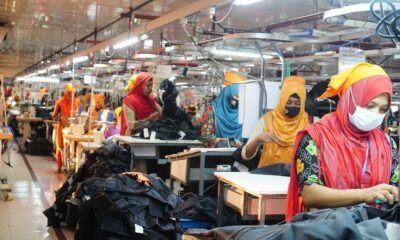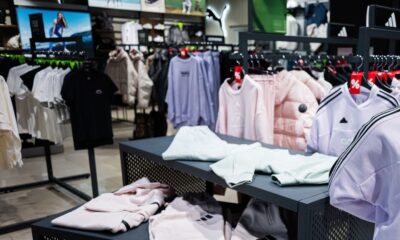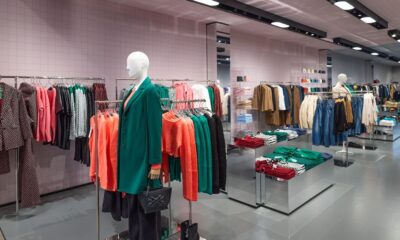Fashion
More UK retail workers than ever at risk of quitting – report

Published
September 6, 2025
More than half of UK retail staff were at risk of leaving their jobs during spring than at any other time in the last two years over concerns around the insecurity of retail employment.
Some 54% of retail workers were a ‘flight risk’ between April and June, a 19% increase from the previous year, according to the latest Retail People Index from the Retail Trust and AlixPartners.
It is also the highest percentage that the Retail People Index has recorded since it began tracking wellbeing across the sector two years ago.
More than 600 employees were surveyed, and answers to questions about pay, recognition, development and work-related anxiety were among those used to help calculate the flight risk score, which shows the likelihood of employees leaving their jobs.
Overall, wellbeing fell seven points year-on-year, from 66 to 59, and the number of retail staff working while feeling physically or mentally unwell rose by 12%, to 44% of all employees.
The report says its findings follow separate data from the Office for National Statistics (ONS), which shows that there were 93,000 fewer retail jobs in March 2025 than in March 2024. The ONS also recently revealed that retail saw one of the largest drops in job vacancies between May and July 2025 compared to any other sector.
According to the Index, the impact of leading under-resourced teams has contributed to a decline in happiness levels among retail managers, which fell by 11%. This marks the first time that managers have reported feeling unhappier than non-managers since the publication of the first Index.
Many managers reported feeling unfairly paid and unrecognised for doing something well. Meanwhile, the number of retail workers reporting a positive relationship with their manager also dropped to its lowest level in two years.
Chris Brook-Carter, chief executive of the Retail Trust, said: “Our research has previously shown retail workers tend to be at their happiest going into the summer, once the busy winter is well behind them, but ongoing insecurities around jobs, finances and the political climate are continuing to take their toll on people working in retail.
“The rising employment costs announced in last year’s budget are placing huge economic pressures on the sector and we’re seeing this felt most severely by those working in management roles right now. They are the ones having to hold often under-resourced and unhappy teams together, and our findings suggest they feel inadequately supported for doing so.”
He added: “The financial pressures impacting the retail sector are largely outside of employers’ control, but there is an urgent need to address the particular burden this is now having on managers and to prevent the knock-on effect it will also have on their teams. Providing more training and support for leaders to look after themselves and those working for them is crucial if we are to prevent a further decline in morale, higher turnover and greater instability at a time when resilience is more important than ever.”
Laura Bond, a director at AlixPartners, also said: “This quarter’s Retail People Index reveals urgent challenges for retailers. With 54% of employees looking to leave their roles – the highest flight risk since our tracking began – and wellbeing scores dropping to 59%, below the critical 60% threshold, it’s clear that employees are struggling. Presenteeism rates have soared to 44%, the highest level seen in 18 months, while manager-employee relationships have deteriorated and reached a 24-month low.
“The seasonal spring wellbeing ‘bounceback’ is absent this year, and managers, traditionally the most resilient group, have seen an 11% decline in happiness year-on-year. Retailers must fundamentally shift their workplace culture to address these deeper issues, investing in manager support, overall morale, and staff wellbeing. Failing to do so risks continued talent loss, weakened service, and operational strain in an already challenging market.”
Copyright © 2025 FashionNetwork.com All rights reserved.
Fashion
Netherlands’ goods exports to US fall 4.7% in Jan-Oct 2025
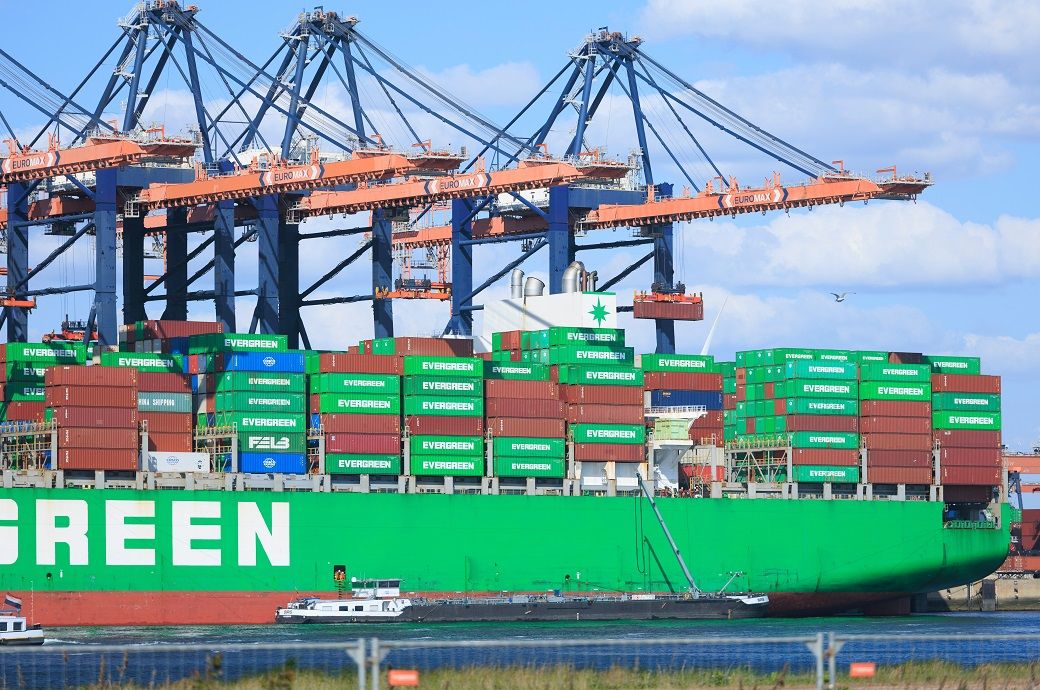
The data showed that the decline was driven mainly by weaker domestic exports, with goods produced in the Netherlands down 8 per cent YoY. In contrast, re-exports to the US rose 3.9 per cent during the period. Exports to the US have fallen every month on a YoY basis since July, CBS said in a press release.
Trade flows were influenced by uncertainty around US import tariffs. In the first half of 2025, trade between the two countries continued to grow, possibly as companies advanced shipments ahead of announced tariff measures.
Goods exports from the Netherlands to the United States fell 4.7 per cent YoY to €27.5 billion (~$33 billion) in the first ten months of 2025, driven by an 8 per cent drop in domestic exports, according to CBS.
Re-exports rose 3.9 per cent, while tariff uncertainty weighed on trade.
Imports from the US increased 1.9 per cent to €48.1 billion (~$57.7 billion).
Meanwhile, imports from the United States rose 1.9 per cent YoY to €48.1 billion (~$57.7 billion) in the first ten months of 2025.
Fibre2Fashion News Desk (SG)
Fashion
Philippines revises Q3 2025 GDP growth down to 3.9%

The Philippines’ economic growth for the third quarter (Q3) of 2025 has been revised slightly lower, with gross domestic product (GDP) expanding 3.9 per cent year on year (YoY), down from the preliminary estimate of 4 per cent.
Gross national income growth for the quarter was also revised to 5.4 per cent from 5.6 per cent, while net primary income from the rest of the world was adjusted to 16.2 per cent from 16.9 per cent.
The Philippine Statistics Authority has revised down the country’s third-quarter 2025 GDP growth to 3.9 per cent from an earlier estimate of 4 per cent.
Gross national income growth was also lowered to 5.4 per cent, while net primary income from abroad eased to 16.2 per cent.
The PSA said the adjustments reflect its standard, internationally aligned revision policy.
The Philippine Statistics Authority said the revisions were made in line with its approved revision policy, which follows international standards for national accounts updates.
Fibre2Fashion News Desk (HU)
Fashion
US’ Levi Strauss reports solid FY25, driven by organic growth
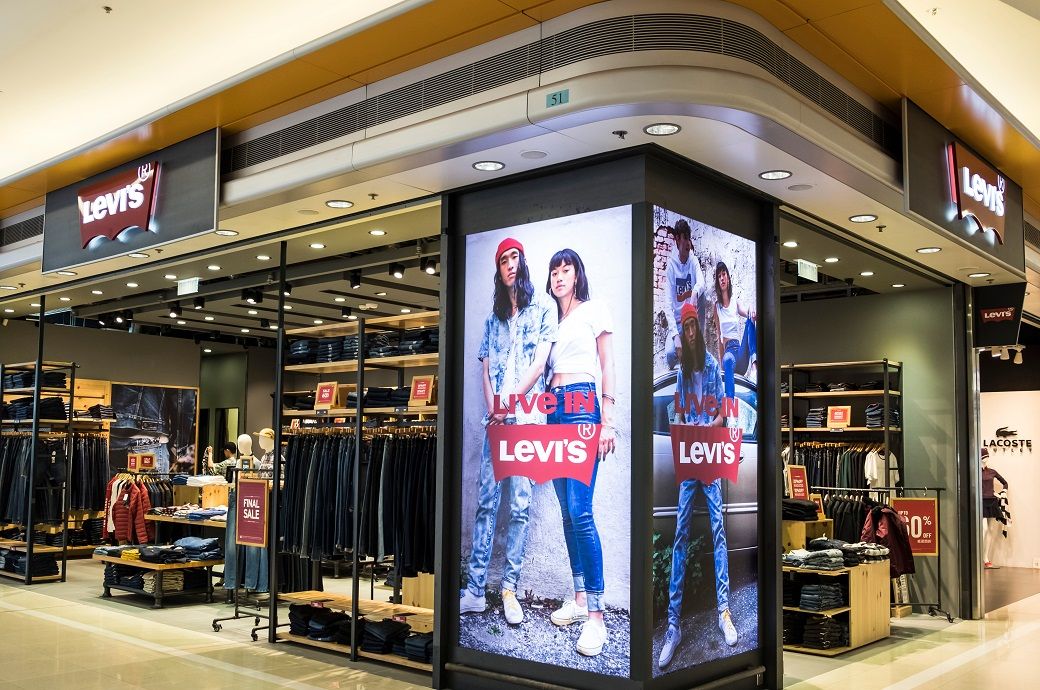
Operating margin improved sharply to 10.8 per cent from 4.4 per cent in FY24, while adjusted EBIT margin increased to 11.4 per cent from 10.7 per cent, marking the third consecutive year of margin expansion. The net income from continuing operations more than doubled to $502 million from $210 million, with adjusted net income rising to $537 million.
Levi Strauss & Co has delivered a strong FY25, with net revenues rising 4 per cent to $6.3 billion and organic growth of 7 per cent, alongside sharp margin expansion and higher profitability.
Q4 saw 5 per cent organic growth, led by Europe, Asia and DTC, which accounted for nearly half of revenues.
The company expects mid-single digit growth and further margin gains in FY26.
Diluted EPS from continuing operations increased to $1.26 from $0.52 in the previous year, while adjusted diluted EPS rose to $1.34 from $1.24. The company generated $530 million in operating cash flow and $308 million in adjusted free cash flow. The company returned $363 million to shareholders during the fiscal, up 26 per cent YoY, LS&Co said in a press release.
In the fourth quarter (Q4) ended November 30, 2025, the company reported net revenues of $1.8 billion, up 1 per cent on a reported basis and 5 per cent organically compared with Q4 FY24. Growth was broad-based, supported by strong momentum in Europe, Asia and Beyond Yoga, alongside high-single digit comparable growth in direct-to-consumer (DTC).
Europe recorded reported revenue growth of 8 per cent and organic growth of 10 per cent, while Asia delivered growth of 2 per cent reported and 4 per cent organically. In the Americas, revenues declined 4 per cent reported but increased 2 per cent organically, with the US business flat on an organic basis. Beyond Yoga continued to outperform, posting reported growth of 37 per cent and organic growth of 45 per cent.
DTC revenues increased 8 per cent on a reported basis and 10 per cent organically, driven by strength across all regions. E-commerce revenues rose 19 per cent reported and 22 per cent organically, with DTC accounting for 49 per cent of total quarterly revenues. Wholesale revenues declined 5 per cent reported and were flat organically.
Operating margin in the quarter was stable at 11.9 per cent, while adjusted EBIT margin declined to 12.1 per cent from 13.9 per cent a year earlier due to tariff-related pressure on gross margins and higher adjusted SG&A expenses. Gross margin stood at 60.8 per cent versus 61.8 per cent in Q4 FY24. Net income from continuing operations was $160 million, with diluted EPS of $0.4 and adjusted diluted EPS of $0.41.
“Over the past few years, we’ve taken bold steps towards becoming a DTC-first, head-to-toe denim lifestyle brand,” said Michelle Gass, president and CEO of Levi Strauss & Co. “We are well on our way toward realising our strategic ambitions. We have narrowed our focus, improved operational execution and built greater agility across the organisation. As a result, we’ve elevated the Levi’s brand and delivered faster growth and higher profitability as reflected by our Q4 and full year 2025 results. While we still have important work ahead, the company is at an inflection point—emerging as a stronger, more resilient global business ready to define the next chapter of LS&Co.”
“We are sustaining our momentum, delivering 5 per cent organic growth in the fourth quarter on top of 8 per cent growth in the prior year. Our success in denim lifestyle has enabled us to expand our addressable market, positioning us for mid-single digit growth in 2026 and beyond,” said Harmit Singh, chief financial and growth officer of Levi Strauss & Co. “Our disciplined approach to converting growth into profitability has improved adjusted EBIT margin again in 2025 for the third year in a row, and we are on track to expand margins further as we strive toward 15 per cent. Our confidence in this trajectory is reflected in a new $200 million ASR program.”
Looking ahead, the company expects mid-single digit revenue growth in fiscal 2026 alongside further adjusted EBIT margin expansion, supported by continued DTC momentum, disciplined cost management and ongoing brand strength, added the release.
Fibre2Fashion News Desk (SG)
-

 Sports6 days ago
Sports6 days agoPSL 11: Local players’ category renewals unveiled ahead of auction
-

 Entertainment5 days ago
Entertainment5 days agoClaire Danes reveals how she reacted to pregnancy at 44
-

 Tech1 week ago
Tech1 week agoICE Asks Companies About ‘Ad Tech and Big Data’ Tools It Could Use in Investigations
-

 Fashion1 week ago
Fashion1 week agoSpain’s apparel imports up 7.10% in Jan-Oct as sourcing realigns
-

 Sports5 days ago
Sports5 days agoCollege football’s top 100 games of the 2025 season
-

 Business6 days ago
Business6 days agoBanking services disrupted as bank employees go on nationwide strike demanding five-day work week
-

 Fashion1 week ago
Fashion1 week agoAustralian wool prices climb again as exporters drive demand
-

 Politics5 days ago
Politics5 days agoTrump vows to ‘de-escalate’ after Minneapolis shootings






